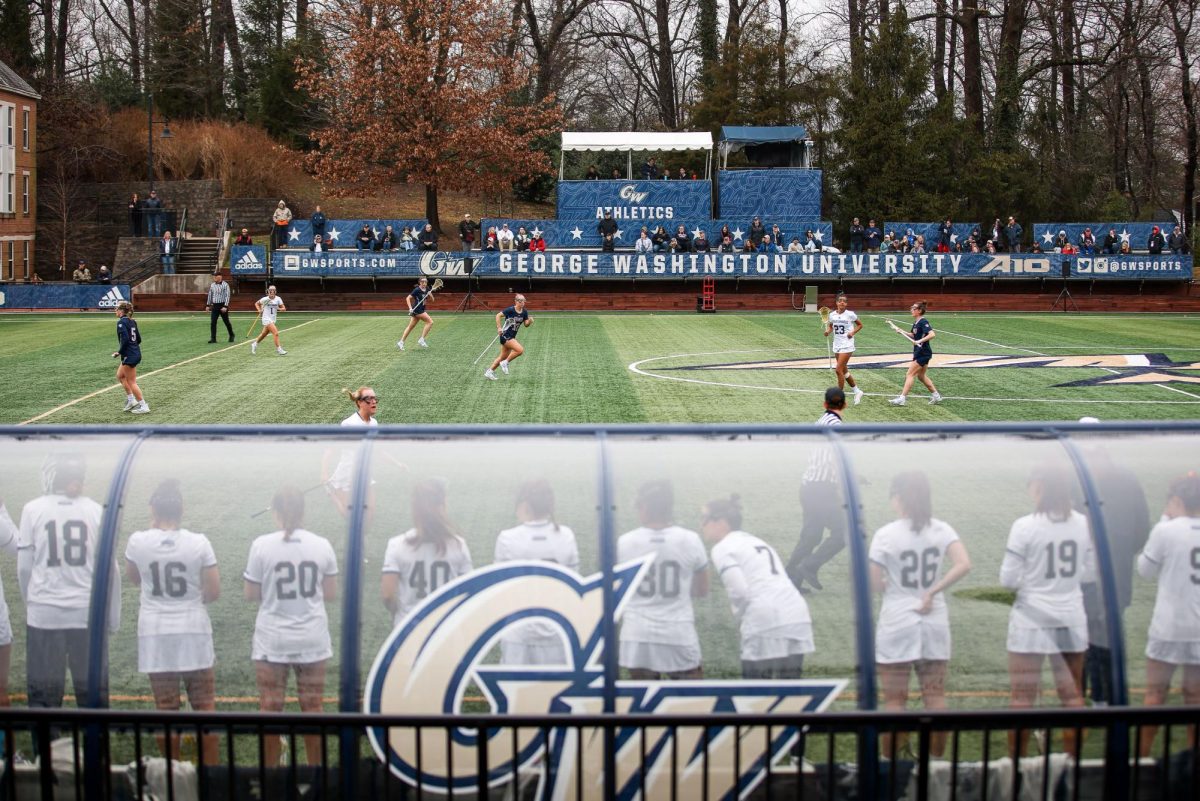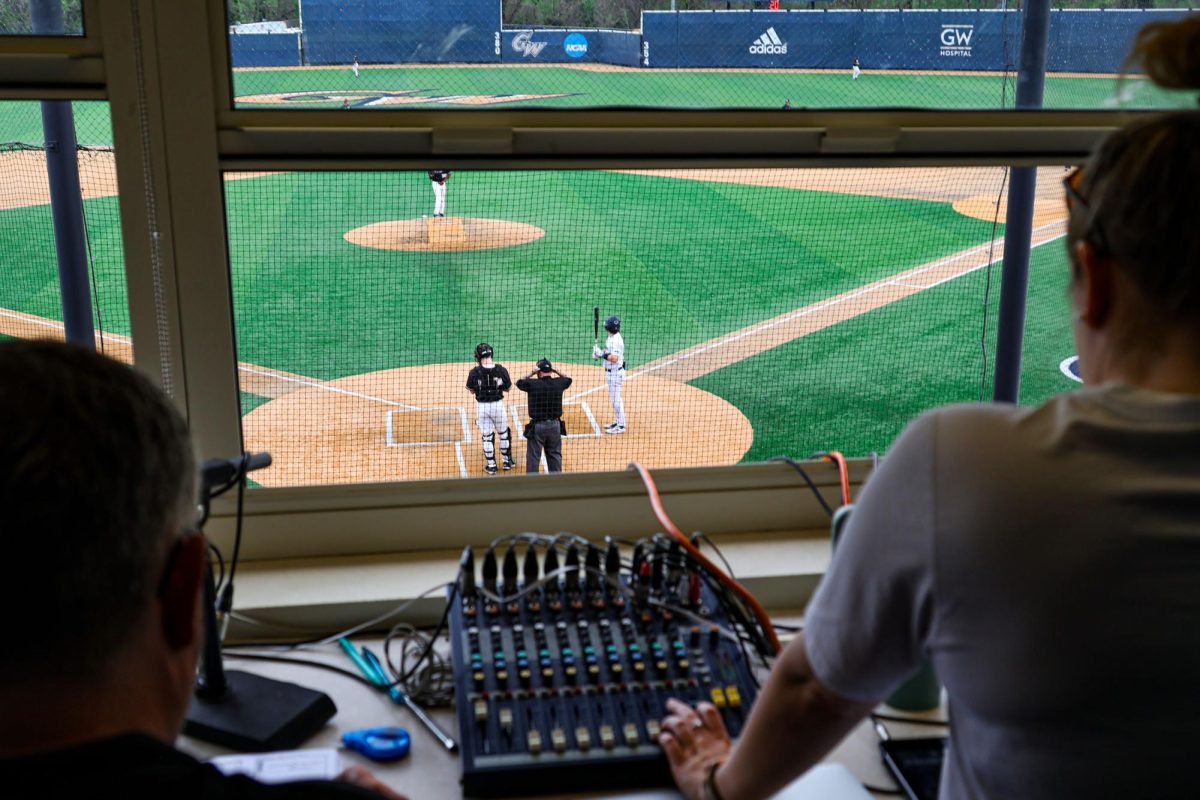Now the District is batting again, and the count appears to be in its favor. The Montreal Expos are relocating for sure, and D.C. is one of three finalists. The city is close, but can it finally come through?
Last week, six District representatives flew to New York to meet with Major League Baseball’s Relocation Committee. It was a “get-to-know-each-other” session. It was the first step in a process that could put an end D.C.’s dormant summer sports scene. It was the first pitch of yet another at bat.
Mayor Anthony Williams led the delegation to the relocation committee along with D.C. Council Chairwoman Linda Cropp and the Executive Director of the D.C. Sports and Entertainment Commission, Bobby Goldwater.
Major League Baseball officials were unavailable for comment due to a gag order imposed by Commissioner Bud Selig, but Goldwater said the 1 hour, 40 minute meeting went well.
“The general thrust of the meeting was informal, very conversational,” Goldwater said. “It was really a chance for Major League Baseball to meet people from the District (who are) responsible for getting things done.”
In this instance, getting things done means building a ballpark. This is where Washington appears to have the edge over Portland, Ore. and Northern Virginia, the two competing areas that also sent delegations to the relocation committee last week.
Rough economic times have taken their toll on Portland. Last week the citizens of Oregon had to vote on a measure that would either raise taxes or result in $310 million statewide budget cuts. Voters chose the budget cuts.
Without the possibility of new taxes, financing a stadium would be difficult. Two years ago the city used $33 million to renovate a downtown stadium that brought them the AAA Portland Beavers. Attendance has been high for the Beavers, but the team lost $8 million in its first season and the city had to bail out its owners. Currently, no potential ownership groups have stepped forward. If the Expos were to be awarded to Portland, Major League Baseball would have to beat the bushes for an ownership group.
Northern Virginia appears in better shape than Portland. They have a potential owner in GW graduate William Collins III and the state legislature has already passed a bill that would finance one-third of a new stadium. Their delegation, however, has said they want Major League Baseball to conditionally award them the franchise before they commit to more financing. While members of the Virginia delegation have said they are considering different sites for a potential ballpark, none have been released publicly.
Then there is Washington. The city originally released five potential stadium sites, including cost projections, and is now seriously considering four of them after a Mount Vernon Square option was eliminated because of high costs. Mayor Williams has said publicly that getting the Expos is “one of the highest priorities for our city, if not the highest priority.”
Goldwater said the delegation made it a point to show Major League Baseball that when the District makes something a priority, it gets done.
“An example of this is the convention center,” Goldwater said. “The public financing was done in a creative fashion that did not take money from the general fund. The money from all the other city services was not touched, and that’s the goal for any public financing for a new ballpark.”
One problem Washington may encounter is Baltimore Orioles owner Peter Angelos, who has long opposed a team in the District. Camden Yards, the Orioles’ home park, is roughly 40 miles from downtown Washington, and Angelos may sue Major League Baseball on the grounds that his rights as an owner would be violated.
But Goldwater dismissed the idea.
“Baseball will certainly not be interested in doing anything significantly harmful to the Orioles,” he said. “If you count the Washington market and the Baltimore market, you’re well over 7 million people. And now you’re talking about an area the size of Chicago, and guess what – they’ve got two teams.”
And for GW students, a trek downtown or across the river is quicker than a 75-minute MARC train ride to Baltimore.
Terence Kane, a GW student and an Oriole fan from Salisbury, Md., said he would like another team in the area, and he’d prefer Washington to northern Virginia.
“I’d still be interested in a northern Virginia team, but I think there would be something really neat about having a team right in D.C.,” he said.
Kane would also like to see baseball back in the District for the same reason most college kids would: their wallets.
“It’s a lot cheaper to go to baseball games than it is to go to Wizards and Capitals games,” Kane said. “And I think it’s a better product.”
While many will argue the latter half of that statement, the cheaper cost is a fact. According to ESPN.com, the average MLB ticket price in 2001 was $18.86, compared to $47.70 for the NHL and $51.34 for the NBA.
“As an entertainment choice, baseball still remains the most affordable as far as ticket prices,” Goldwater said. “It’s a great place for college students and the college community to go.”
Freshman Emily McCarthy agreed. She has not attended any Wizards or Capitals games but said she would go to a baseball game.
“I think it’s a good thing for a college student, especially if they offer us reasonable prices,” she said.
GW Admissions Director Kathryn Napper said a baseball team in Washington would have an indirect effect on admissions. She said prospective students already know about professional teams, so the admissions department does not usually address that point, but “anything that makes D.C. more appealing is always going to help us in the long run.”
Napper said that if the Student Activities Center planned events around going to baseball games, the admissions office would mention it as another opportunity available for students.
Mike Gargano, associate vice president for Student and Academic Support Services, said events are currently planned around Orioles games, and the same would be done for a team in the District or in Northern Virginia.
All three cities’ delegations will meet with the relocation committee again in either March or April, although no date or place has been set. Baseball officials said they hope to choose a city by July and have the Expos playing in their new home by 2004, although that timetable is not set in stone. With the country’s hard economic times, Major League Baseball could decide to give the cities more time to come up with financing plans if none are satisfactory.
For now, though, each city is preparing for March. Goldwater said that the Washington delegation’s days are “consumed” with planning for the next meeting.
“We will be ready to make a presentation,” he said, “And bring to life all the benefits of Washington and demonstrate that there is no better place to relocate a baseball team than Washington D.C.”






